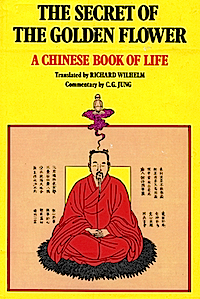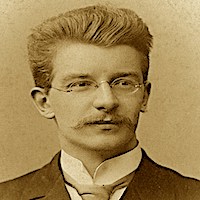

Tao Te Ching

Secret of the Golden Flower 太乙金華宗旨; Tàiyǐ Jīnhuá Zōngzhǐ
By Lü Dongbin
Trans: Richard Wilhelm
Historically considered the teachings of Lü Dongbin but now considered to have been written hundreds of years later and first published in the 1670’s; the text describes “inner alchemy” meditation, "Zen with details.” It was a major introduction for Carl Jung into the wisdom of the East and a profound influence on him. On one hand, it teaches a simple, straightforward meditation technique. On the other, it offers a powerful insight into a greater possible physical and psychological health and illumination.
Themes
Quotes from Secret of the Golden Flower 太乙金華宗旨; Tàiyǐ Jīnhuá Zōngzhǐ
“‘Good’ refers to our original nature before our parents were born. Before anything develops within us, we possess this goodness. ‘Good’ means natural.”
Chapters:
62. Basic Goodness
Comments: Click to comment
“Consciousness dissolves itself in vision.”
Chapters:
15. Inscrutability
Comments: Click to comment
“Dreams are the wanderings of spirit through all nine Heavens and all the nine Earths.”
Chapters:
Comments: Click to comment
“essence is either originally good—if looked at from the standpoint of the eternal idea (Mencius), or it is originally evil, or at least neutral—if taken from the standpoint of empirical evolution (Xun Kuang)—and has to be made into something good by a long development of custom.”
Chapters:
Comments: Click to comment
“Hold fast to the primal and guard the One—it guards true power and can prolong the span of life.”
Chapters:
Comments: Click to comment
“In comparison with Heaven and Earth, man is like a mayfly. But compared to the Great Meaning, Heaven and Earth, too, are like a bubble and a shadow. Only the primordial spirit and the true essence overcome time and space.”
Chapters:
Comments: Click to comment
“in our Taoism, the expression 'to produce emptiness' contains the whole work of completing life and essence... It is the washing of the heart and the purification of the thoughts...the work of making the heart empty... forever tarrying in purposelessness.”
Chapters:
Comments: Click to comment
“Only after one hundred days of consistent work, only then is the light genuine; only then can one begin to work with the spirit-fire.”
Chapters:
Comments: Click to comment
“opposites always balance on the scales – a sign of high culture. One-sidedness, though it lends momentum, is a mark of barbarism.”
Chapters:
2. The Wordless Teachings
Comments: Click to comment
“people should not miss the way that leads from conscious action to unconscious non-action... Non-action prevents a man from becoming entangled in form and image. Action in non-action prevents a man from sinking into numbing emptiness and a dead nothingness.”
Chapters:
Comments: Click to comment
“the concepts of the creative and the receptive that originate in the I Ching are symbolized by Heaven and Earth. Through the union of heaven and Earth, there develop the 'ten thousand things', that is, the outer world.”
Chapters:
Comments: Click to comment
“The good cultivate themselves, they don’t concern themselves with others.”
Chapters:
79. No Demands
Comments: Click to comment
“The secret of the magic of life consists in using action in order to achieve non-action.”
Chapters:
Comments: Click to comment
“When occupations come to us we must accept them; when things come to us we must understand them from the ground up.”
Chapters:
27. No Trace
Comments: Click to comment
“When the conscious spirit transforms into the primordial spirit, it attains an unending capacity for transformation and brings the six-fold present, the golden spirit.”
Chapters:
Comments: Click to comment
“when things come to us, we must understand them from the ground up... When in ordinary life one has the ability to react to thing by reflexes only, without any admixture of a thought of others or of oneself, that is a circulation of the Light arising out of circumstances. It is the first secret.”
Chapters:
Comments: Click to comment
Related Lineages (1 lineages)
Quotes about Secret of the Golden Flower 太乙金華宗旨; Tàiyǐ Jīnhuá Zōngzhǐ (1 quotes)

“This philosophy [Lü Dongbin's] is—to a certain extent—the common property of all Chinese trends of thought. It is built on the premise that cosmos and man in the last analysis obey common laws; that man is a cosmos in miniature and is not divided from the great cosmos by any fixed limits.”
Comments: Click to comment
Comments (0)